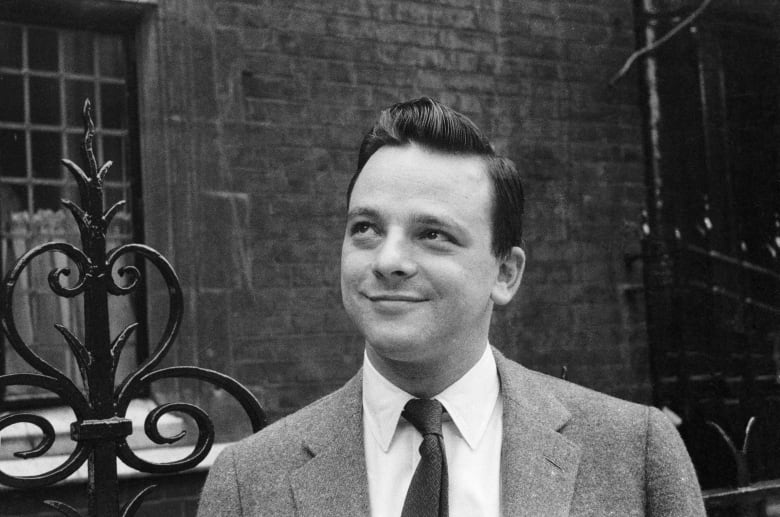Stephen Sondheim, the songwriter who reshaped American musical theatre in the second half of the 20th century with his intelligent, intricately rhymed lyrics, his use of evocative melodies and his willingness to tackle unusual subjects, has died. He was 91.
Sondheim’s death was announced by Rick Miramontez, president of DKC/O&M. Sondheim’s Texas-based attorney, Rick Pappas, told The New York Times the composer died Friday at his home in Roxbury, Conn.
Sondheim influenced several generations of theatre songwriters, particularly with such landmark musicals as Company, Follies and Sweeney Todd, which are considered among his best work. His most famous ballad, Send in the Clowns, has been recorded hundreds of times, including by Frank Sinatra and Judy Collins.
The artist refused to repeat himself, finding inspiration for his shows in such diverse subjects as an Ingmar Bergman movie (A Little Night Music), the opening of Japan to the West (Pacific Overtures), French painter Georges Seurat (Sunday in the Park with George), Grimms’ fairy tales (Into the Woods) and even the killers of American presidents (Assassins), among others.
‘Singing your songs forever’
Tributes quickly flooded social media as performers and writers alike saluted a giant of the theatre.
“We shall be singing your songs forever,” wrote Lea Salonga. Aaron Tveit wrote: “We are so lucky to have what you’ve given the world.”
“The theatre has lost one of its greatest geniuses and the world has lost one of its greatest and most original writers. Sadly, there is now a giant in the sky. But the brilliance of Stephen Sondheim will still be here as his legendary songs and shows will be performed for evermore,” producer Cameron Mackintosh wrote in tribute.

Six of Sondheim’s musicals won Tony Awards for best score, and he also received a Pulitzer Prize (Sunday in the Park), an Academy Award (for the song Sooner or Later from the film Dick Tracy), five Olivier Awards and the U.S. Presidential Medal of Honour. In 2008, he received a Tony Award for lifetime achievement.
Sondheim’s music and lyrics gave his shows a dark, dramatic edge, whereas before him, the dominant tone of musicals was frothy and comic. He was sometimes criticized as a composer of unhummable songs, a badge that didn’t bother Sondheim.
Frank Sinatra, who had a hit with Sondheim’s Send in the Clowns, once complained: “He could make me a lot happier if he’d write more songs for saloon singers like me.”
An iconic theatre figure
To theatre fans, Sondheim’s sophistication and brilliance made him an icon. A Broadway theatre was named after him. A New York magazine cover asked: “Is Sondheim God?” The Guardian newspaper once offered this question: “Is Stephen Sondheim the Shakespeare of musical theatre?”
A supreme wordsmith — and an avid player of word games — Sondheim’s joy of language shone through. “The opposite of left is right/The opposite of right is wrong/So anyone who’s left is wrong, right?” he wrote in Anyone Can Whistle. In Company, he penned the lines: “Good things get better/Bad gets worse/Wait — I think I meant that in reverse.”
He offered the three principles necessary for a songwriter in his first volume of collected lyrics: Content dictates form; less Is more; and God is in the details. All these truisms, he wrote, were “in the service of clarity, without which nothing else matters.” Together they led to stunning lines like: “It’s a very short road from the pinch and the punch to the paunch and the pouch and the pension.”
Taught by no less a genius than Oscar Hammerstein, Sondheim pushed the musical into a darker, richer and more intellectual place. “If you think of a theatre lyric as a short story, as I do, then every line has the weight of a paragraph,” he wrote in his 2010 book, Finishing the Hat, the first volume of his collection of lyrics and comments.
Sondheim was born March 22, 1930, into a wealthy family, the only son of dress manufacturer Herbert Sondheim and Helen Fox Sondheim. At 10, his parents divorced and Sondheim’s mother bought a house in Doylestown, Pa., where one of their Bucks County neighbours was lyricist Oscar Hammerstein II, whose son, James, was Sondheim’s roommate at boarding school. It was Oscar Hammerstein who became the young man’s professional mentor and a good friend.
He had a solitary childhood, which involved verbal abuse from his chilly mother. He received a letter in his 40s from her telling him that she regretted giving birth to him. He continued to support her financially and to see her occasionally but didn’t attend her funeral.
Sondheim attended Williams College in Massachusetts, where he majored in music. After graduation, he received a two-year fellowship to study with avant-garde composer Milton Babbitt.





More Stories
Apocalypse now: Why movie and TV fans love the end of the world | CBC News
I Don’t Know Who You Are is a visceral race against time for a critical drug | CBC News
From pop to politics, what to know as Sweden prepares for the 2024 Eurovision Song Contest